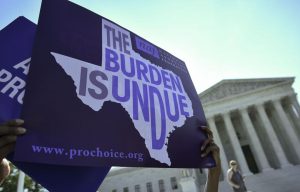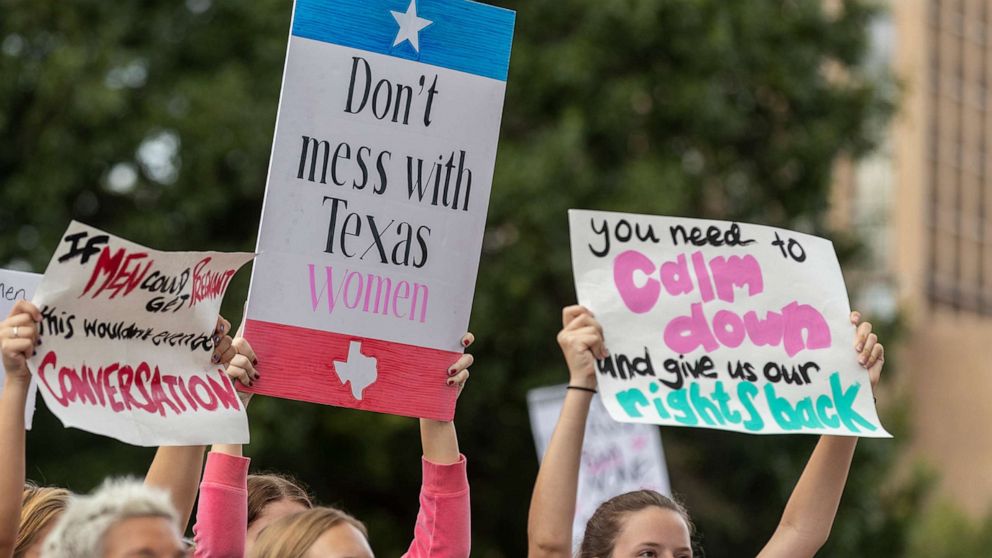Federal Judge Issues Order Blocking Texas’ Six-Week Abortion Ban
Jasleen Chadha
U.S. News Writer
“From the moment S.B. 8 went into effect, women have been unlawfully prevented from exercising control over their lives in ways that are protected by the Constitution”, US District Judge Robert Pitman said when addressing a request from the Justice Department, which brought the lawsuit.
“That other courts may find a way to avoid this conclusion is theirs to decide; this Court will not sanction one more day of this offensive deprivation of such an important right.”

The appointed authority’s structure is a win for abortion laws’ defenders, who had seen different endeavors to hinder the law obstructed by the ban’s plan. Though, it may be just an impermanent triumph.
Pitman, in his request, intended to get around the original implementation scheme – which, as allies have mentioned, was set up to complicate the legitimate way abortion freedoms advocates choose to get court orders impeding outrageous laws.
Texas Legislature deputized residents to bring state court suits against any facility that against any clinic that performs an abortion. The people who help an individual get an abortion and who disregard the conditions of the ban can be designated with state court prosecution and would need to pay $10,000.
“Fully aware that depriving its citizens of this right by direct state action would be flagrantly unconstitutional, the State contrived an unprecedented and transparent statutory scheme to do just that,” the judge wrote Wednesday.
Pitman’s organization hinders any official of the state – including state court judges and court assistants – from implementing the boycott. He expressly denies those officials from “tolerating or docketing, keeping up with, hearing, settling, granting harms in, implementing decisions in, upholding any regulatory punishments in, and controlling any claim” brought under the state law. The appointed authority additionally requested the state to find proactive ways to advise court authorities, just as private people trying to uphold the boycott, that the law is as of now impeded under his request.
Since government authorities aren’t entrusted with executing the law, Texas contends that there is nobody that a court can preemptively order, the manner in which the courts would preemptively urge authorities from carrying out the standard sorts of early termination limitations that force criminal or authoritative disciplines. At a court hearing for the situation Friday, a lawyer for the state said he was unable to distinguish an individual that could be focused on by a court in a request hindering the law.
Pitman said in his request Wednesday that “in spite of the Texas Principal legal officer’s absence of clearness regarding what the State would do despite a primer directive, this Court believes that the State will recognize the right state officials, authorities, judges, assistants, and representatives to follow this Request.
High Court’s new term could see milestone decisions on early termination, weapons, and vouchers.
Texas Right to Life, an anti-abortion group that had supported for the action in the Texas Council, called the decision “ridiculously wide” and “astounding” in its “effort to obstruct state judges and court clerks from fulfilling their lawful duties.”
In a new court document, Whole Woman’s Health, an association that runs a few facilities in the state, said that it would continue abortions following a month and a half if the adjudicator give a request obstructing the law.
Doing as such would in any case introduce a lawful danger to centers, as the Texas law says if a request impeding the law is subsequently turned around by a higher court, facilities are liable for abortions performed while the law was temporarily frozen.
“While this fight is far from over, we are hopeful that the court’s order blocking S.B. 8 will allow Texas abortion providers to resume services as soon as possible,” Alexis McGill Johnson, president, and CEO of Planned Parenthood Federation of America said in a statement after the hearing.
The Texas law bans abortions after the fetal cardiac activity is detected – a point generally around six weeks into a pregnancy and frequently before a woman realizes she is pregnant. It took effect on September 1 after the Supreme Court declined an emergency request to block it. Yet, while the law forestalls admittance to early terminations disregarding the High Court’s milestone 1973 Roe v. Swim choice, its novel structure has helped it in the courts.
Contact Jasleen at jasleen.chadha@student.shu.edu

